In Its Current State Turkey Cannot Become EU Member
Adelina Marini, August 31, 2016
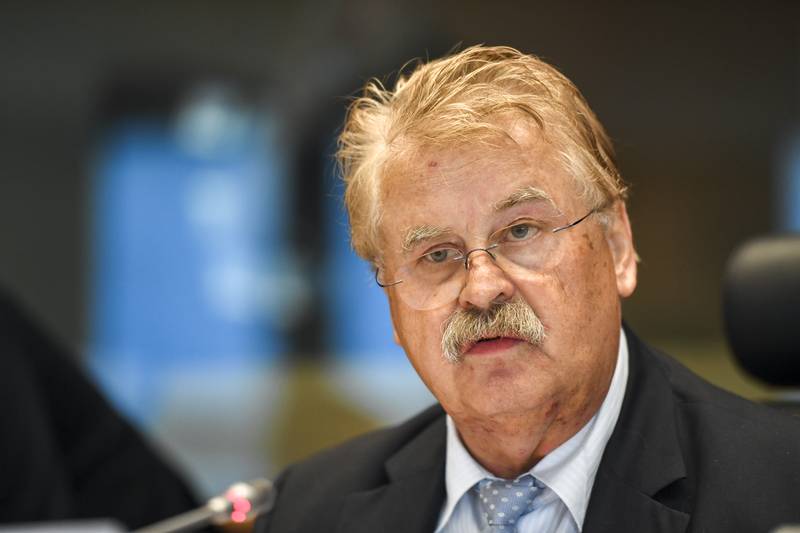 One of the first subjects the European Parliament tackled after its summer break was the situation in Turkey after the coup attempt of July 15. Cause for the debate in the EP’s foreign affairs committee was the visit to Turkey of the committee’s boss Elmar Brok (EPP, Germany) and the Rapporteur for Turkey Kati Piri (Socialists and Democrats, The Netherlands), as well as the upcoming visit of the EP boss, Martin Schulz (Socialists and Democrats, Germany), this week. There was dissent among MEPs regarding the approach towards Turkey, but everyone agreed that in its current state (of the democracy and rule of law), Turkey is not fit to become an EU member. Many of the MEPs, who spoke during the two-hour debate pointed out Turkey’s movement further away from Europe, but most of them were of the opinion that Turkey is a very important partner of the EU and dialogue with it should continue.
One of the first subjects the European Parliament tackled after its summer break was the situation in Turkey after the coup attempt of July 15. Cause for the debate in the EP’s foreign affairs committee was the visit to Turkey of the committee’s boss Elmar Brok (EPP, Germany) and the Rapporteur for Turkey Kati Piri (Socialists and Democrats, The Netherlands), as well as the upcoming visit of the EP boss, Martin Schulz (Socialists and Democrats, Germany), this week. There was dissent among MEPs regarding the approach towards Turkey, but everyone agreed that in its current state (of the democracy and rule of law), Turkey is not fit to become an EU member. Many of the MEPs, who spoke during the two-hour debate pointed out Turkey’s movement further away from Europe, but most of them were of the opinion that Turkey is a very important partner of the EU and dialogue with it should continue.
Kati Piri and Elmar Brok presented a very different picture of what is happening in Turkey from what is the predominant one in Europe. After their meetings with representatives of the government, the opposition, non-governmental organisations, and journalists, the two of them were left with the impression that Turkey has no intention of defaulting on the deal, brokered earlier this year, which covers the refugee crisis, enlargement, and security issues. Elmar Brok stated that that he did not get the impression from the meetings he had that Turkey is blackmailing the EU with this agreement and recommended that Europe undertakes a more calculated rhetoric. Kati Piri in turn said that not in a single meeting did the subject of the death penalty arise, which outraged the European Union and raised the question whether Turkey could continue to be a candidate country.
Both of them shared that their visit to Turkey was rather positive and warned that Turkey is an important geostrategic partner, and it is important to keep it “on our side, rather than in someone else’s camp”, as Mr Brok put it. Both of them recognised the problems with rule of law, uncertainties surrounding the mass arrests of alleged Gülenists, and the need for a fair trial for all convicts. They did, however, remind that Turkey has so far taken in a huge number of Syrian refugees. Elmar Brok especially addressed politicians in Bratislava, Budapest, and even Berlin, that when they talk that their countries are overloaded with “several hundred refugees”, need to remember that in some Turkish cities Syrian refugees amount to over 20% of the population.
Brok also stated that he does not want Greece and Italy turning into refugee camps and that solidarity needs to be provided throughout the EU itself regarding refugees. He marked as more good news that the position of Turkey regarding Syria is beginning to become clear. His speech showed that during his meetings in Turkey he accepted the worries of Turkish authorities, bred by the controversial attitude in the EU towards the Kurds. He reminded that even in European law the PKK is labelled a terrorist organisation and stated that, at the moment, Kurds are fighting ISIS, so that they can expand their areas of influence.
Kati Piri, who Elmar Brok admitted is placed under enormous pressure regarding her upcoming report on Turkey, is of the opinion that Europe has underestimated the effect that the coup attempt had on Turkish society. Many of the members of the EP’s foreign affairs committee, who spoke, requested that a clear distinction is made between the coup attempt and the subsequent government actions. The British member of the committee Richard Howitt (Socialists and Democrats) again urged that Chapters 23 and 24 of the negotiations with Turkey be opened, for this is the best way that the EU could aid the country in swinging back on the road of building democracy and rule of law. Of the same opinion was his Austrian colleague Othmar Karas (EPP), who did however warn that a clear distinction should be made between the dialogue that is being currently led with Turkey and its accession. Current talks do not automatically lead to membership, he warned.
For the opening of Chapters 23 and 24 also advocated Slovenian MEP from the Liberals' group Ivo Vajgl, according to whom we have a deficit of understanding of Turkey in the EU. Croatian MEP Andrej Plenković (EPP) also stated it is very important that membership negotiations with Turkey continue. Alexander Graf Lambsdorff (ALDE, Germany) objected that he cannot understand how, under the current situation in Turkey, there could be any discussion about opening chapters. Kati Piri agreed that “this Turkey” cannot become a member of the EU. MEPs of the European Conservatives and Reformists group were more restrained. Charles Tannock (Great Britain) urged that Turkey is condemned for having its army fight the Kurds in Syria. According to him, the EU should seriously worry about 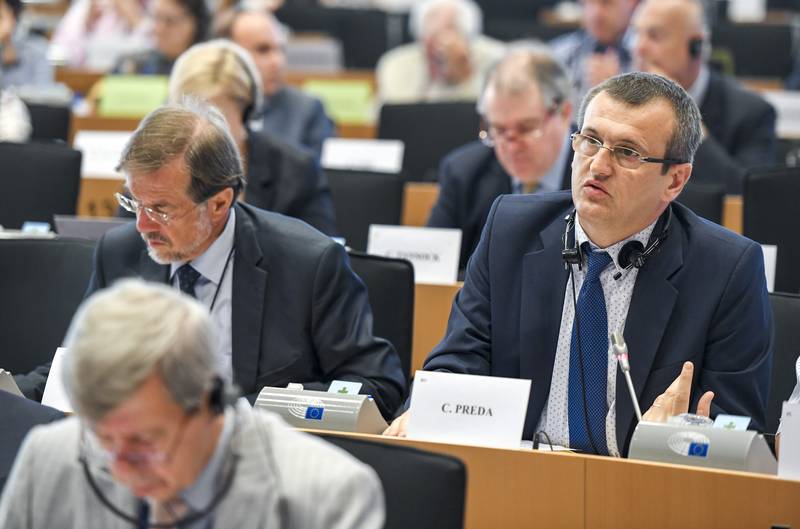 the rapprochement between President Erdoğan and Russian head of state Vladimir Putin. “The two of them have a very close mentality” were his words.
the rapprochement between President Erdoğan and Russian head of state Vladimir Putin. “The two of them have a very close mentality” were his words.
His Bulgarian colleague in the group Angel Dzhambazki warned that at the moment there is a battle going on between two Islamists – Erdoğan and Gülen, which will lead to nothing good. To his words that the deal with Turkey of this spring is a complete failure Elmar Brok opposed by reminding that at the moment there are just 200-250 refugees crossing the border into the EU on a daily basis, whereas last year there were thousands. Another Bulgarian MEP joined the debate – Andrei Kovachev (EPP), according to whom all necessary steps must be taken not to isolate Turkey. “Political isolation will lead to more extremism and radicalisation of Turkish society”, he said and demanded Turkey to give clear proof that the Gülenist movement is behind the coup.
At the end of the debate Rapporteur Ms Piri urged the European Parliament under no circumstances to vote in visa liberalisation with Turkey until all 72 conditions are met. “I am aware that this is not a technical issue”, she said, but stressed that this is not about blocking Turkey, but about non-compliance on its side with the visa waiver criteria. The European Commission is expected to publish its regular report on compliance with visa liberalisation criteria in mid-September.
Translated by Stanimir Stoev
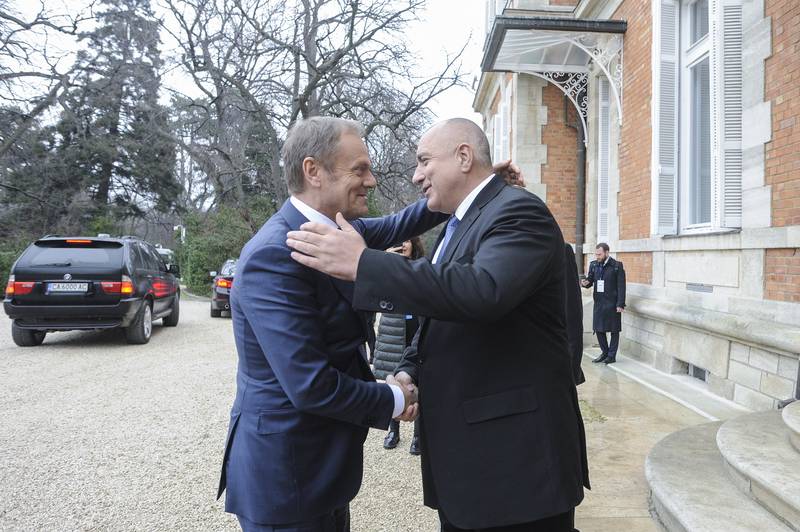 Donald Tusk, Boyko Borissov | © Council of the EU
Donald Tusk, Boyko Borissov | © Council of the EU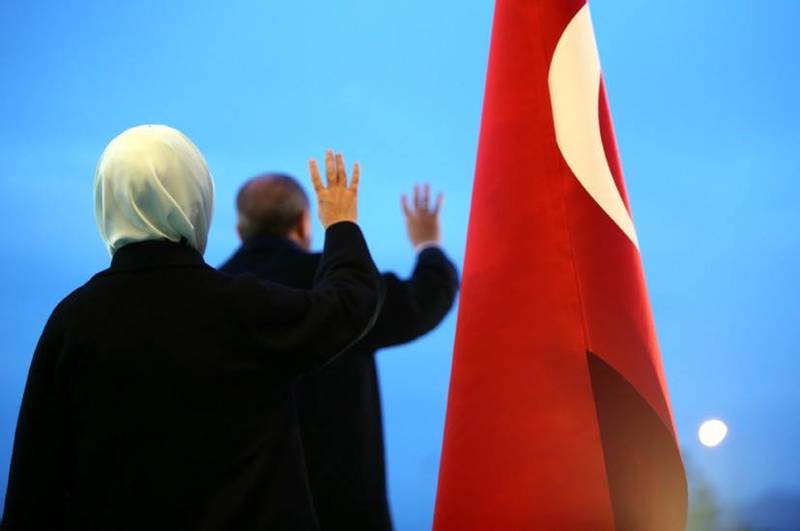 | © Turkey Presidency
| © Turkey Presidency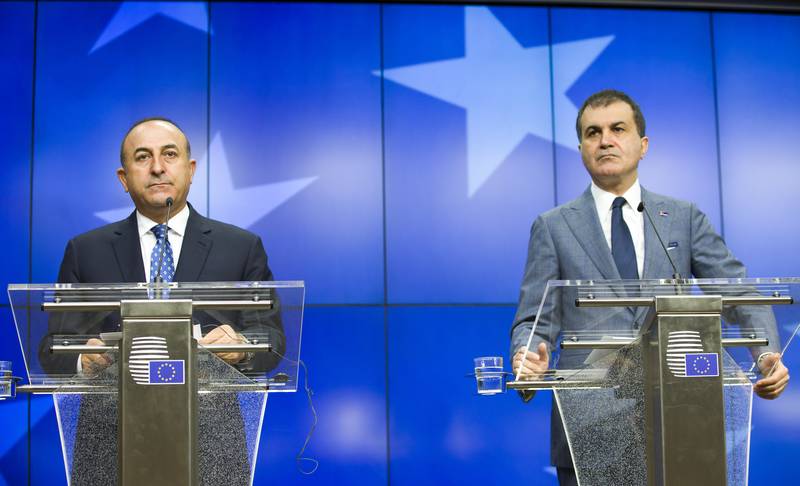 Mevlüt Çavuşoğlu, Ömer Çelik | © Council of the EU
Mevlüt Çavuşoğlu, Ömer Çelik | © Council of the EU